Gas vs Electric Water Heater: Comparison
When it comes to choosing between gas and electric water heaters, understanding the key differences is important. Gas water heaters offer advantages such as faster heating and lower operating costs, but they require a gas line and regular maintenance. Electric water heaters, on the other hand, are easier to install and maintain, but they may have higher operating expenses and slower heating times. By comparing factors like energy efficiency, upfront costs, and personal preferences, homeowners can make an informed decision on the best type of water heater for their specific needs.

How Does An Electric Water Heater Work?
Your electric water heater operates by utilizing submerged heating elements within the storage tank. These heating elements are powered by your home's electrical system. The thermostat on the unit monitors the water temperature and shuts off the heating elements once the desired temperature is reached. This ensures that the water remains hot and ready for use. Understanding the functioning of your electric water heater helps you recognize the technology behind its ability to provide hot water on demand.

Benefits of electric water heaters
Electric water heaters offer several benefits over traditional gas-powered heaters
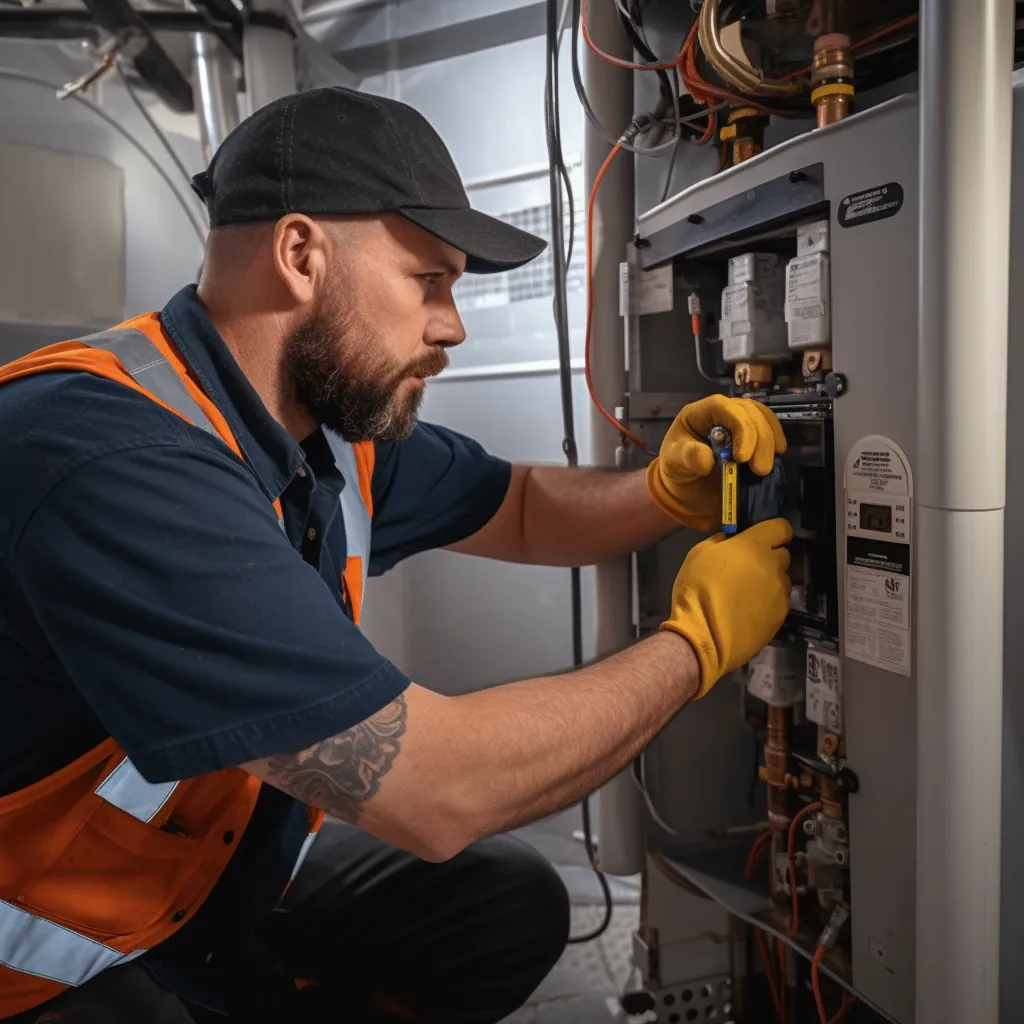
Ewritelectric water heaters generally have a lower initial purchase and installation cost compared to gas-powered units.
Electric water heaters are suitable for any home with access to electricity, making them a practical choice for both urban and rural areas.
Unlike gas-powered units, they do not require a flame to heat the water, resulting in significant savings on your utility bill.
Electric water heaters produce minimal noise during operation, creating a more peaceful environment in your home.
They are not limited by gas availability or venting requirements, allowing for more flexibility in placement.
Disadvantages of electric water heaters
Despite their many advantages, it's important to be aware of some drawbacks associated with electric water heaters:
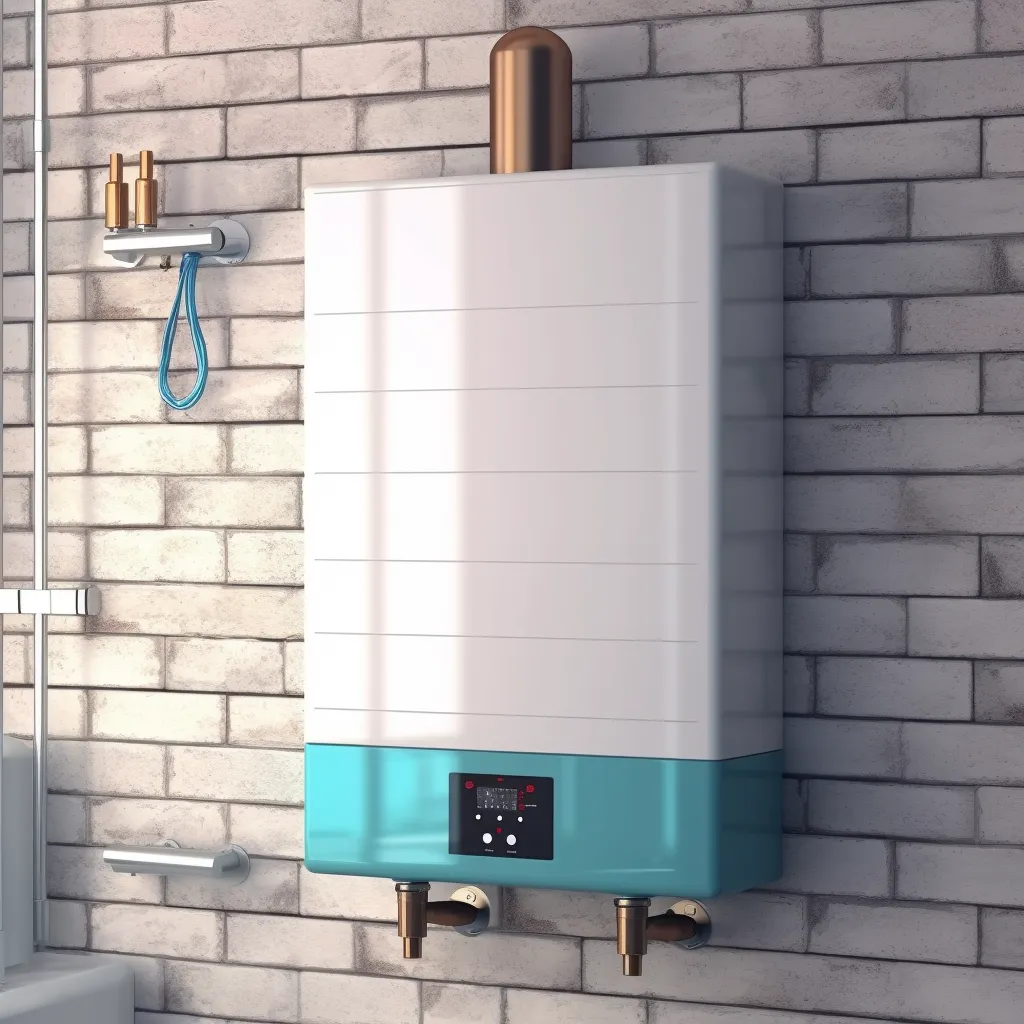
Electric water heaters have a slower recovery rate compared to gas models, meaning it may take longer to heat water to the desired temperature.
Although electric water heaters are more energy-efficient, the operating costs can still be relatively high, resulting in potentially expensive utility bills.
Electric water heaters generally have a shorter lifespan compared to gas water heaters, which means you may need to replace the unit sooner.
Electric water heaters rely on electricity to operate, which means that during power outages, there may be no hot water available.

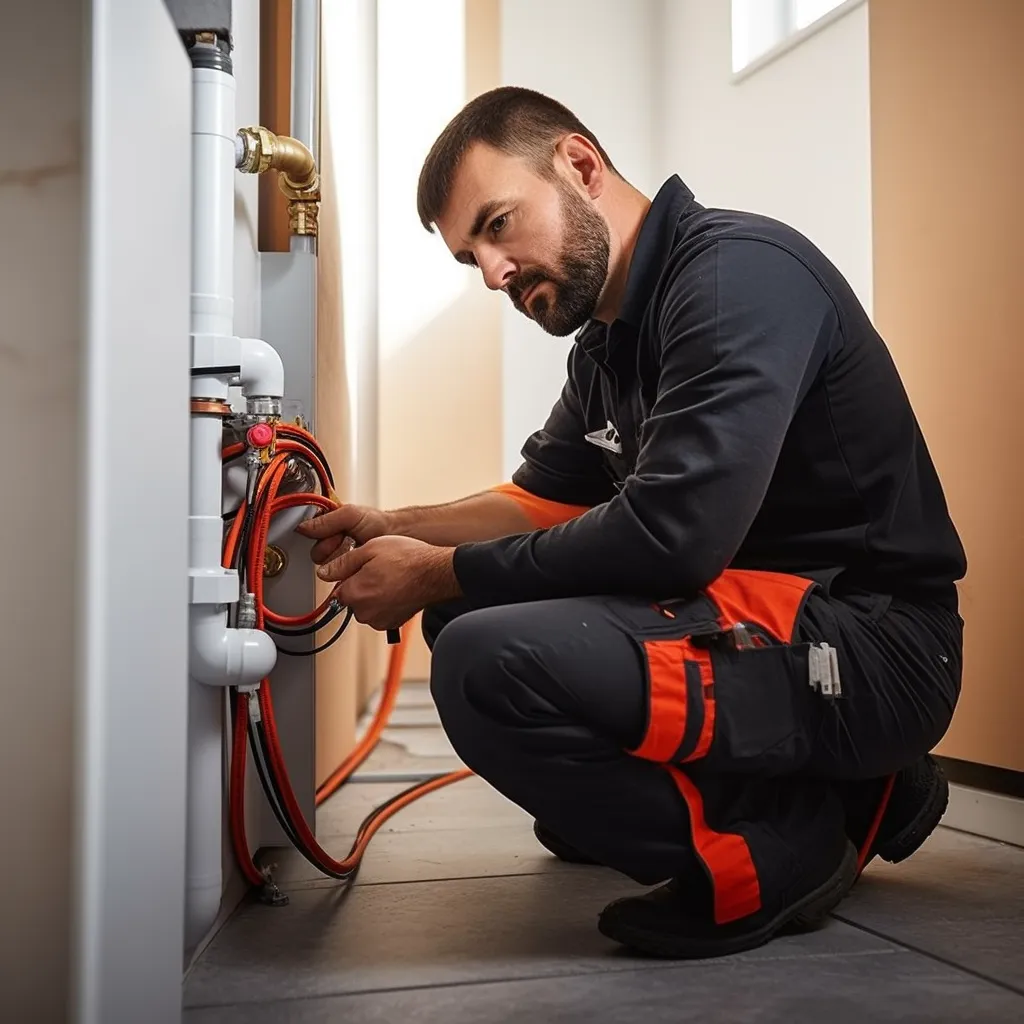
How do gas water heaters work?
Gas water heaters use a gas burner located at the bottom of a large tank to heat the water. This combustion process generates the heat needed to raise the temperature of the water. The heated water is stored in the tank and is ready to be used whenever a hot water tap is opened. The cycle of hot water rising and cold water entering the tank ensures a continuous supply of hot water.
Benefits of gas water heaters
Gas water heaters are a popular choice for many households:
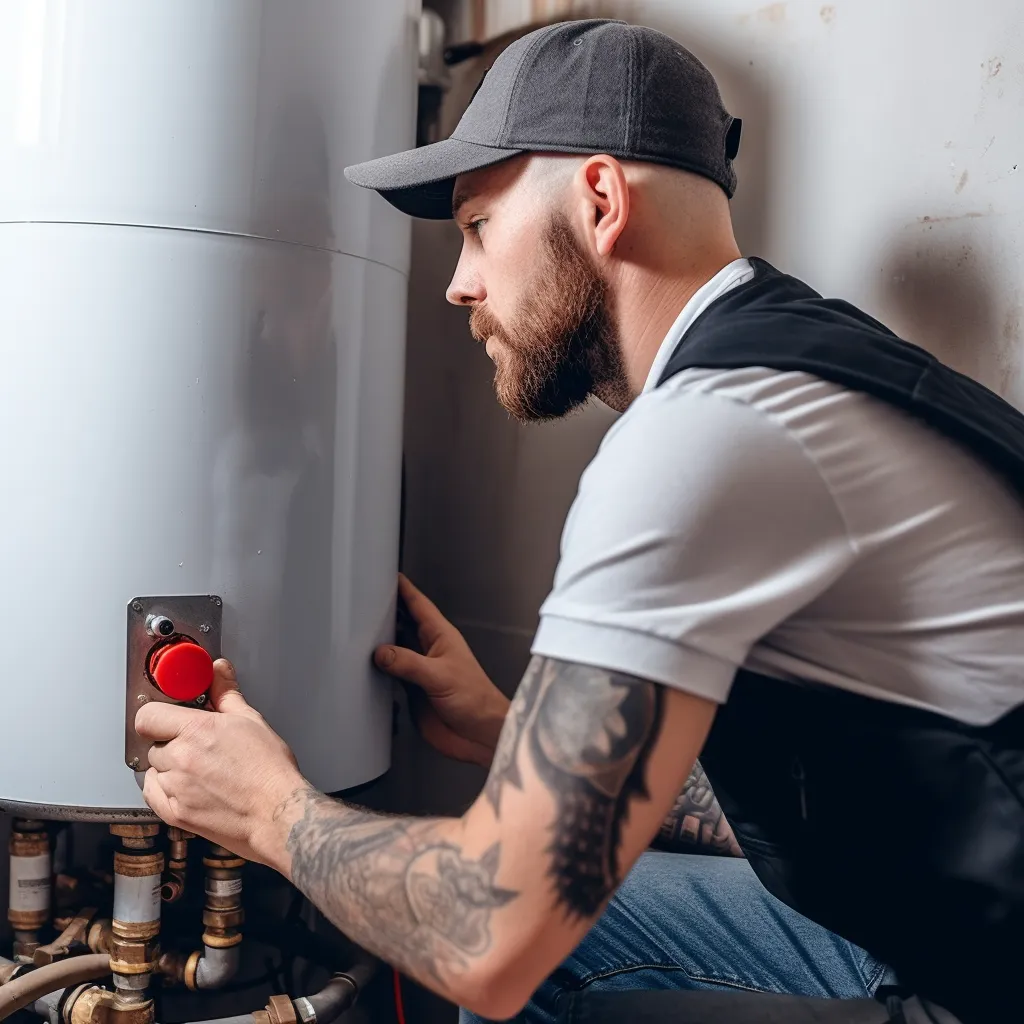
Gas water heaters are generally more energy-efficient, resulting in lower utility bills over time.
Gas units heat water more quickly than electric heaters, providing hot water on demand.
Gas water heaters tend to have a longer lifespan than electric units, reducing the frequency of replacements.
Installing a gas water heater is typically less complex and requires less specialized knowledge compared to electric models.
Gas water heaters are often less expensive to purchase upfront than electric units, providing initial cost savings.
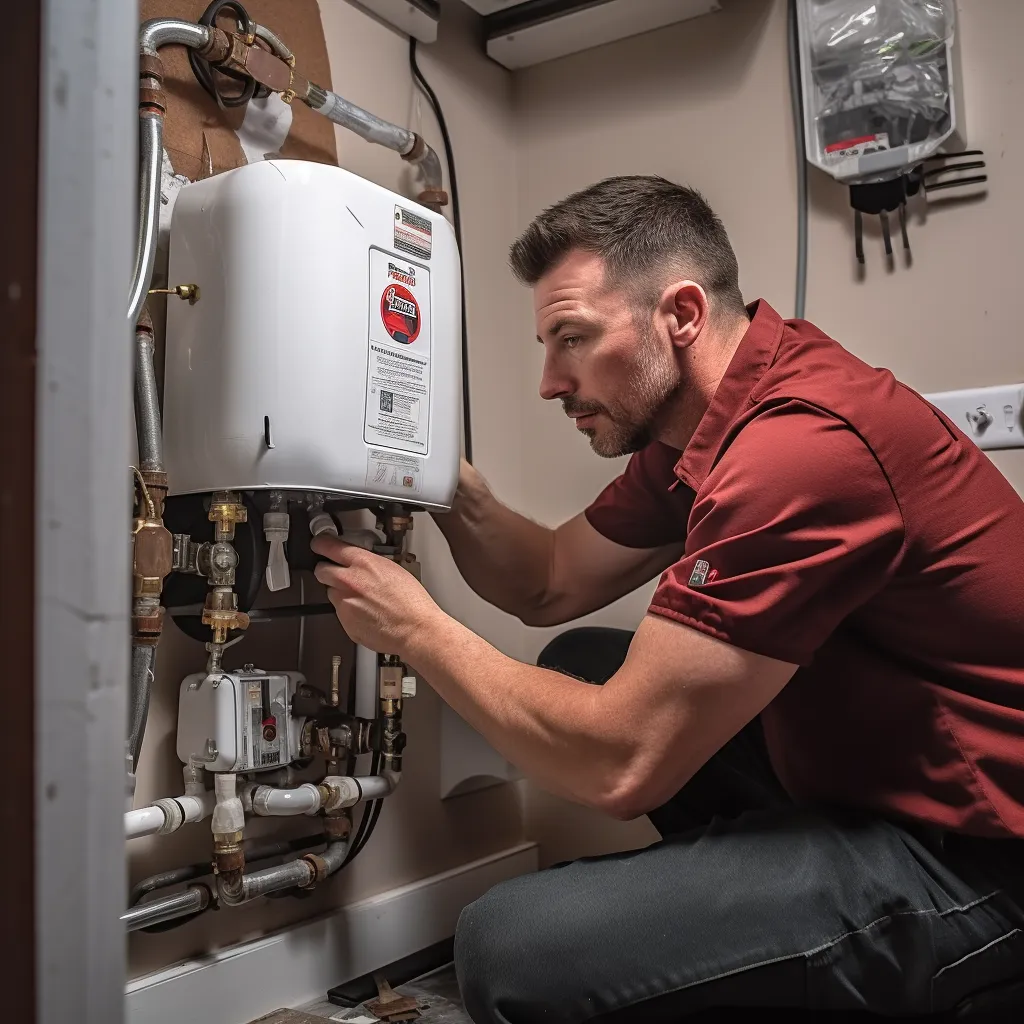
Drawbacks of gas water heaters
It is important to consider some potential drawbacks of gas water heaters:
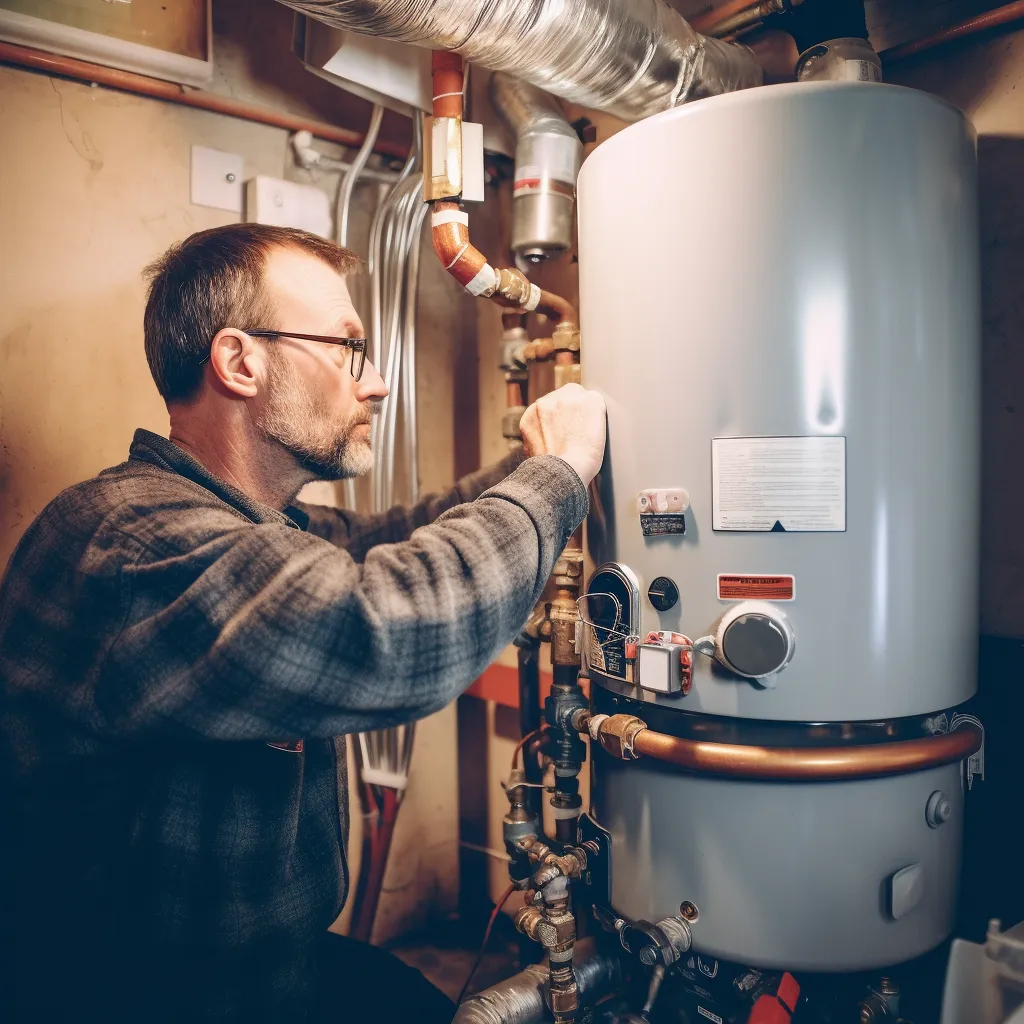
Polluting: Gas water heaters contribute to air pollution due to the burning of natural gas. Consider alternative options for a lower carbon footprint.
Risk of explosion:Improper installation or usage of gas water heaters can lead to explosions. Hire a professional plumber and follow safety guidelines strictly.
Higher maintenance costs: Gas water heaters entail higher maintenance expenses compared to electric units. Regular professional inspections are necessary to ensure optimal performance and longevity.
Longer installation time: Installing gas water heaters takes more time compared to electric units. Allow sufficient hours for a satisfactory installation process.

Are electric water heaters energy-efficient?
The energy efficiency of electric water heaters is influenced by various factors. These include the unit size, insulation quality, operating temperature, and advancements in technology. While gas-powered water heaters are generally considered more efficient, electric models are constantly improving their energy efficiency ratings. By considering these factors and consulting with a professional plumber, homeowners can make informed decisions when it comes to selecting an electric water heater that balances efficiency and performance.
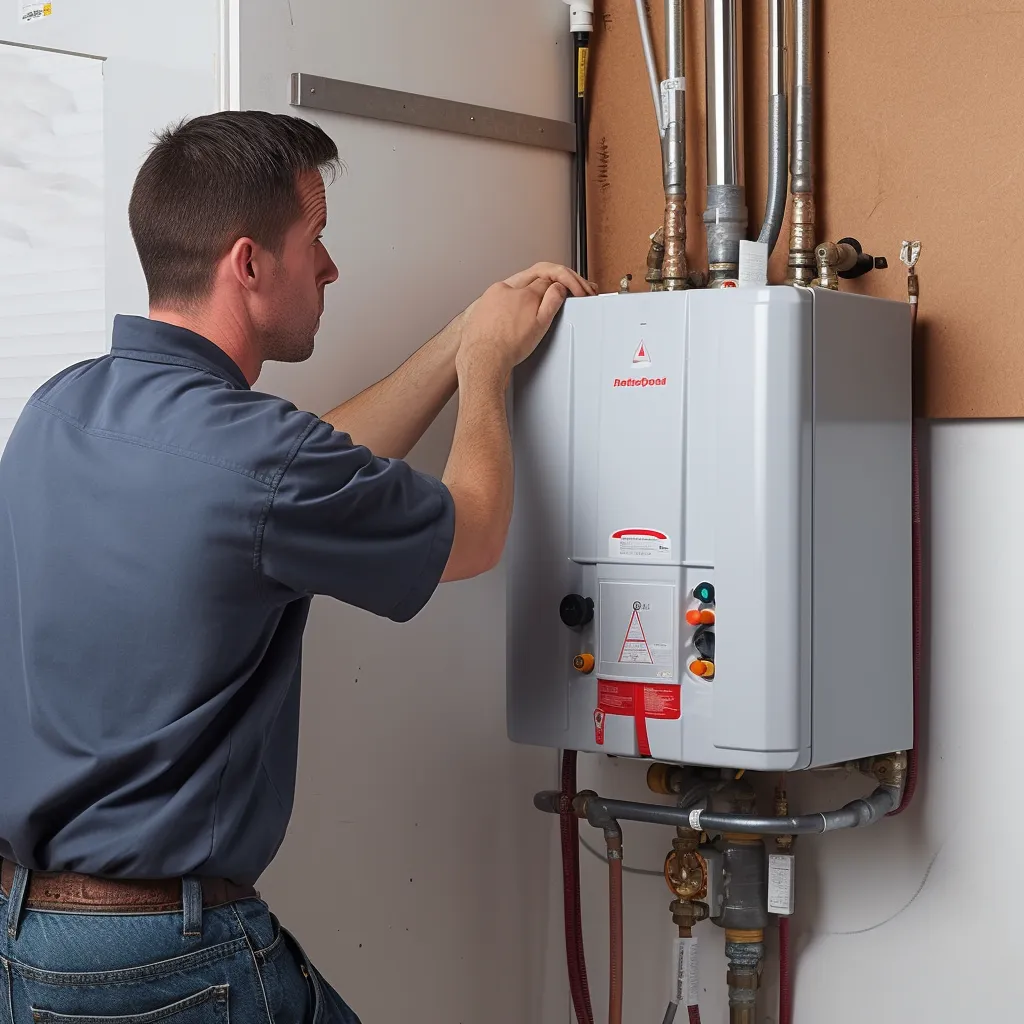
Are gas water heaters energy-efficient?
When it comes to energy efficiency, gas water heaters have a clear advantage over electric models. Operating by burning natural gas to heat water, they consume less energy and offer cost savings. However, the efficiency rating can vary based on factors like the size, model, and maintenance of the heater. To maximize efficiency and savings, regular maintenance practices such as tank flushing and thermostat inspections are recommended. With proper care, gas water heaters provide both energy efficiency and economical benefits.
What does it cost to buy and install electric water heaters?
The cost of electric water heaters can vary depending on the size and features of the unit. On average, a 50-gallon model typically falls within the price range of $300 to $800. However, it's important to note that specific brands or additional features may affect the overall cost.
In addition to the purchase price of the unit, there are installation expenses to consider. Installing an electric water heater generally requires professional assistance, which can add an extra $300 to $500 to the total cost. The exact installation cost depends on factors such as the complexity of the job and any necessary permits.


What does it cost to buy and install gas water heaters?
Gas water heaters are available in a range of sizes, with prices typically ranging from $500 to $1,500. Higher-end models can reach prices as high as $3,000. When considering gas water heaters, it's important to factor in the additional cost of installation, which can vary depending on location and plumbing requirements.
Although the initial cost may appear significant, gas water heaters offer long-term savings and improved energy efficiency. They provide a reliable and uninterrupted supply of hot water, enhancing daily comfort. Hiring a professional plumber for the installation ensures proper functionality and safety.
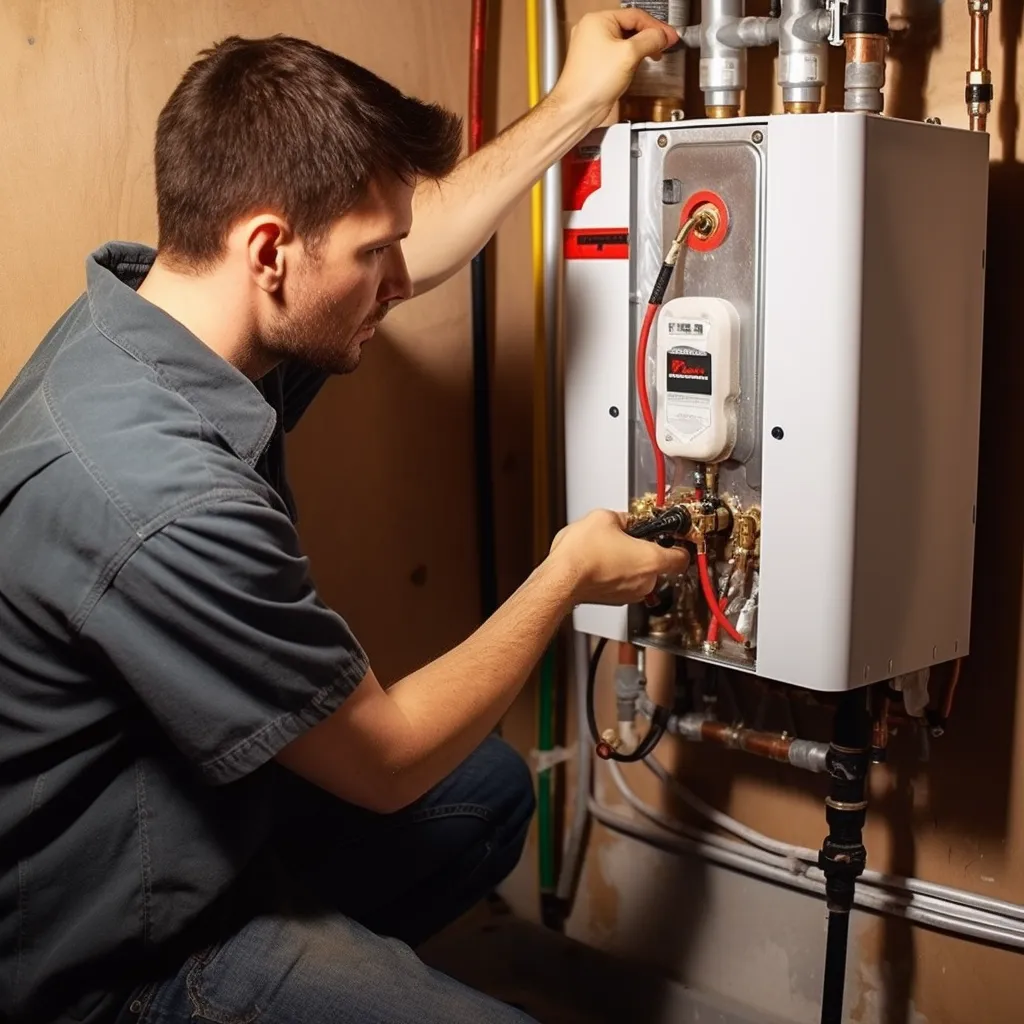
What are the maintenance requirements of electric water heaters?
Proper maintenance is essential for reliable electric water heaters. Regular checks of the temperature and pressure relief valve ensure safe operation. Flushing the tank removes sediment buildup, maintaining efficiency. Inspecting and replacing heating elements as needed ensures consistent hot water supply.
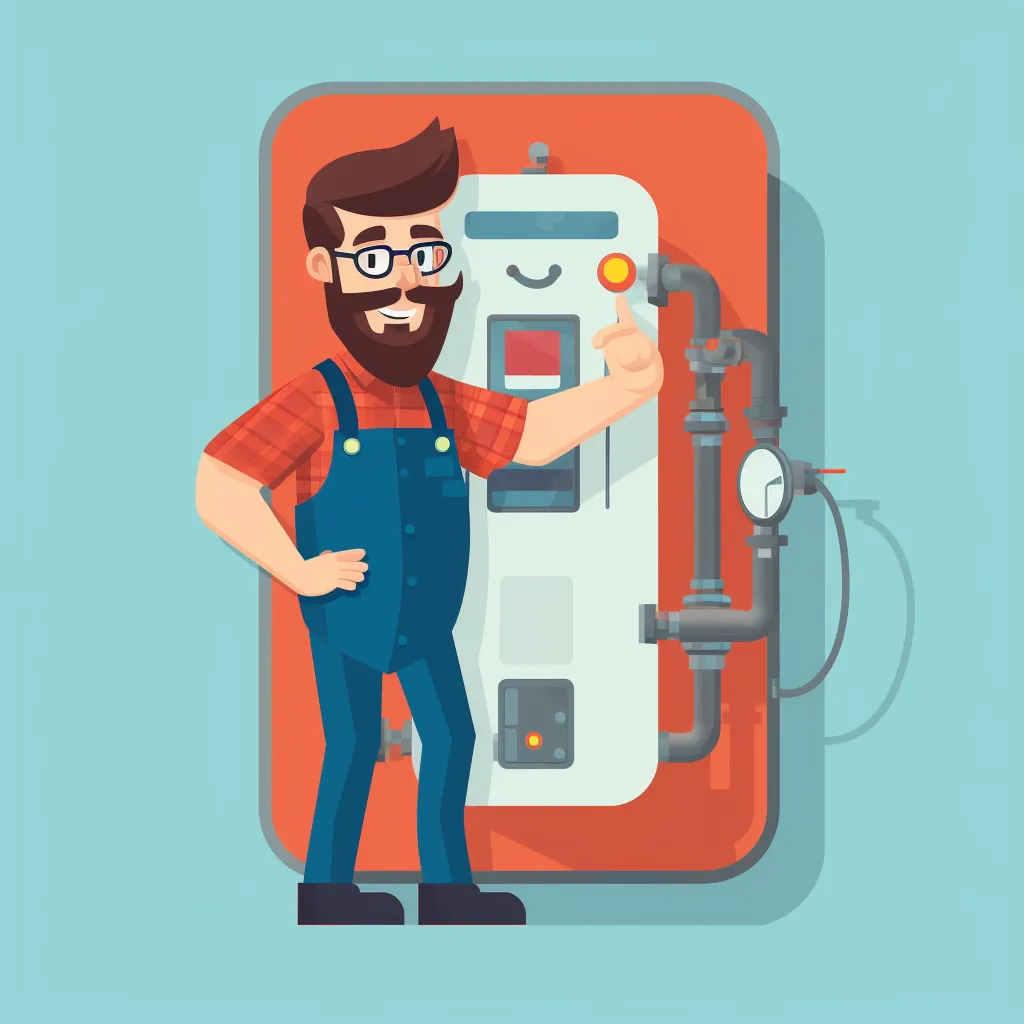
What are the maintenance requirements of gas water heaters?
Proper maintenance is essential for gas water heaters to operate efficiently and safely. Tasks include annual tank flushing, monitoring the anode rod, inspecting the burner and pilot assembly, testing the temperature and pressure relief valve, and checking for gas leaks. With regular maintenance, gas water heaters can provide efficient hot water for years.
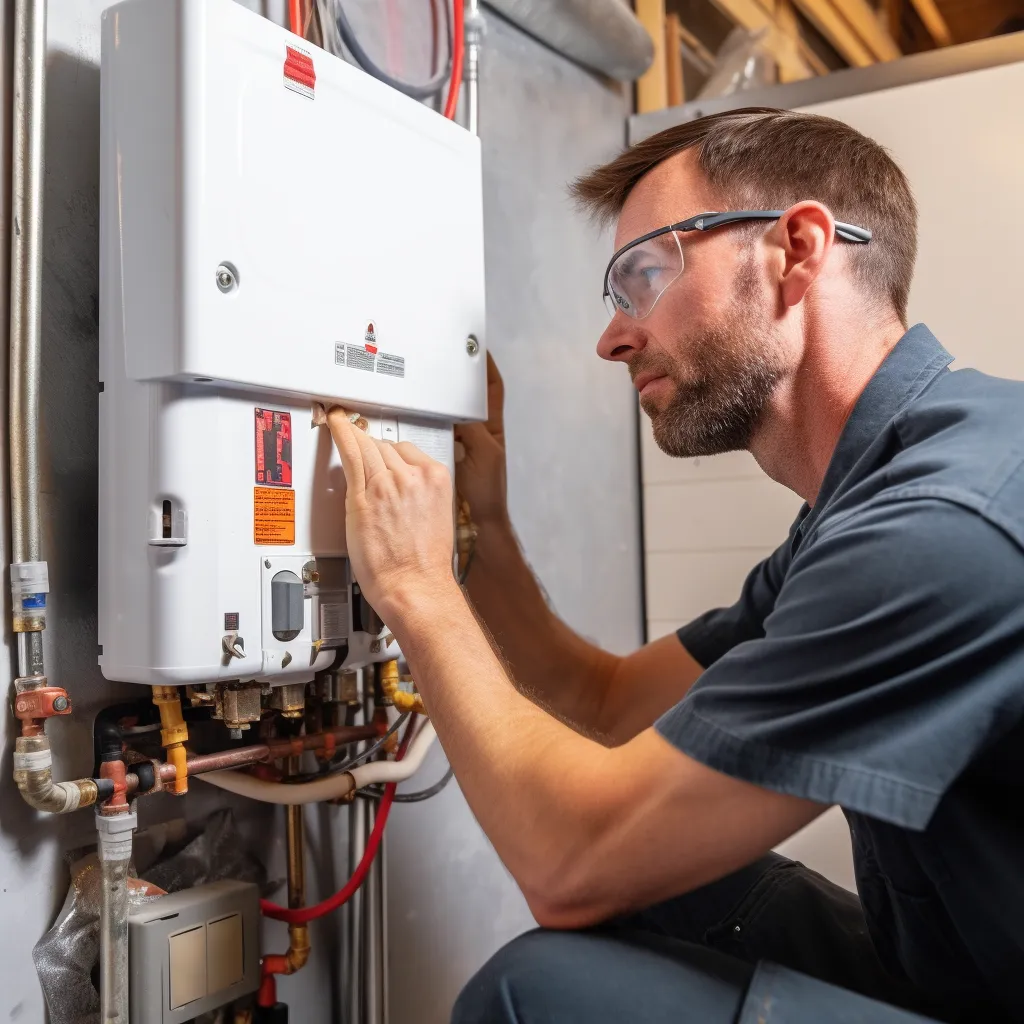
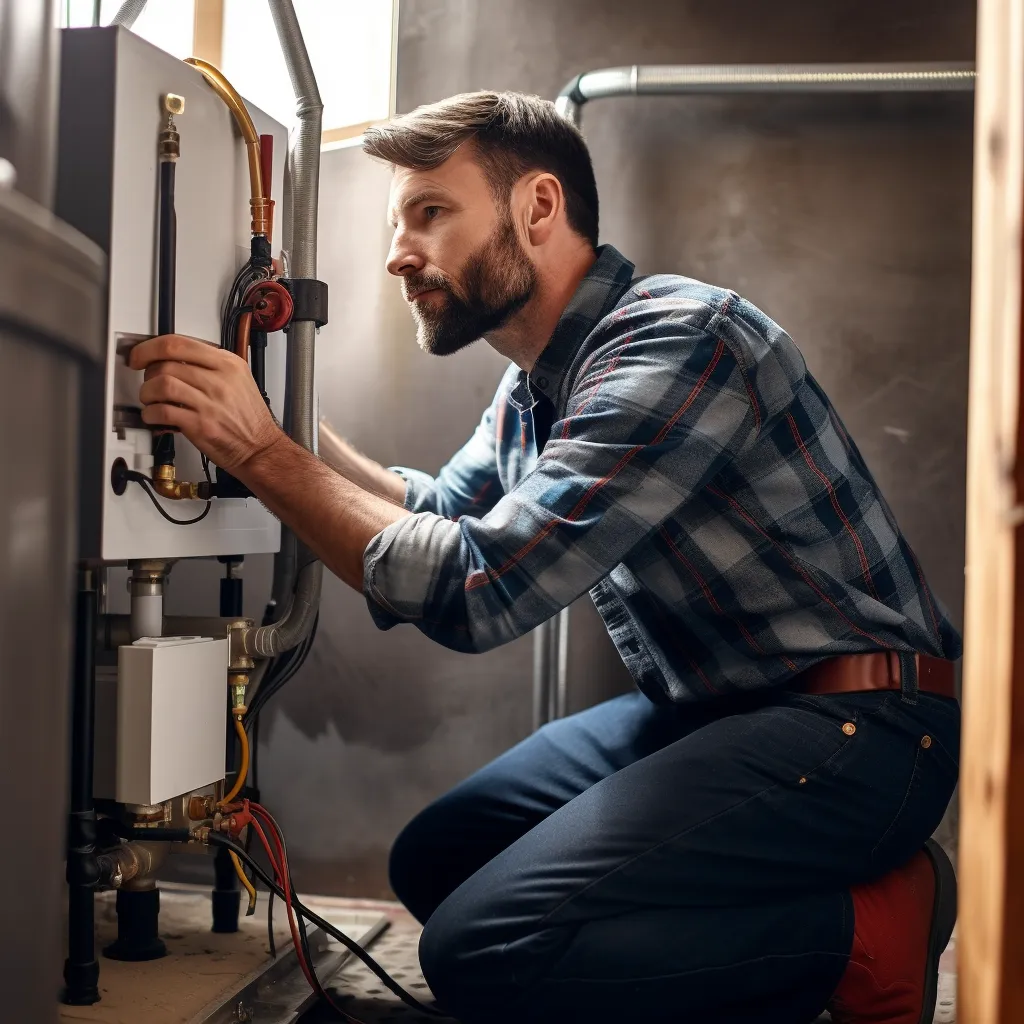
What are the safety risks for electric water heaters?
Safe operation of electric water heaters requires attention to a few key factors. Proper grounding and professional installation minimize the risk of electrocution. Additionally, maintaining a safe distance from flammable materials and ensuring adequate ventilation prevents fire hazards. By prioritizing these safety measures, homeowners can confidently use electric water heaters without compromising their well-being.
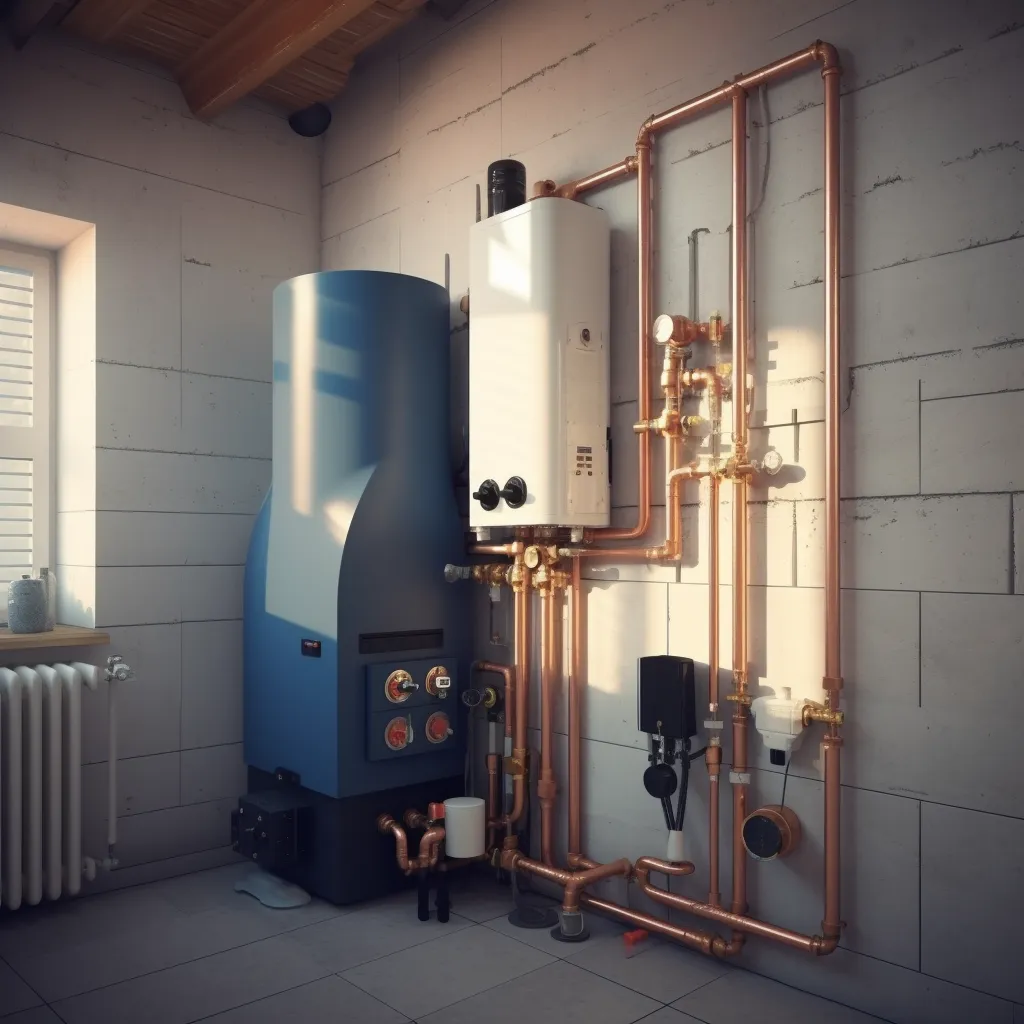
What are the safety risks for gas water heaters?
Safe use of gas water heaters requires proper ventilation to prevent carbon monoxide leaks. Installing a carbon monoxide detector adds an extra layer of protection. Regular checks and prompt repairs maintain proper functioning, while keeping flammable objects away minimizes fire hazards. Prioritizing these safety measures ensures a safe and worry-free experience with gas water heaters.

How to choose between electric vs gas water heater
When selecting a water heater, deciding between options like electric or gas can be intimidating. To help ease your decision-making process, consider the following factors:
Consider the size of your home and the frequency of hot water usage to determine which type of water heater will best meet your requirements.
Electric water heaters generally have a lower upfront cost for purchase and installation compared to gas water heaters. However, gas heaters may offer greater long-term cost savings due to lower operating costs.
Gas water heaters are typically more efficient and cost-effective to operate, resulting in potential energy savings over time.
Electric water heaters generally require less maintenance compared to gas heaters. However, gas heaters require regular inspections to ensure safe operation and prevent malfunctions due to the presence of flammable elements.
Depending on their fuel source, electric water heaters can produce fewer emissions and contribute to a lower carbon footprint compared to gas water heaters.
By considering these factors, homeowners can make a more informed decision when choosing between electric and gas water heaters. Assess your specific needs, budget, efficiency preferences, and environmental considerations to select the most suitable option for your home. Consulting with a professional plumber can also provide valuable insights and guidance in making the right choice.
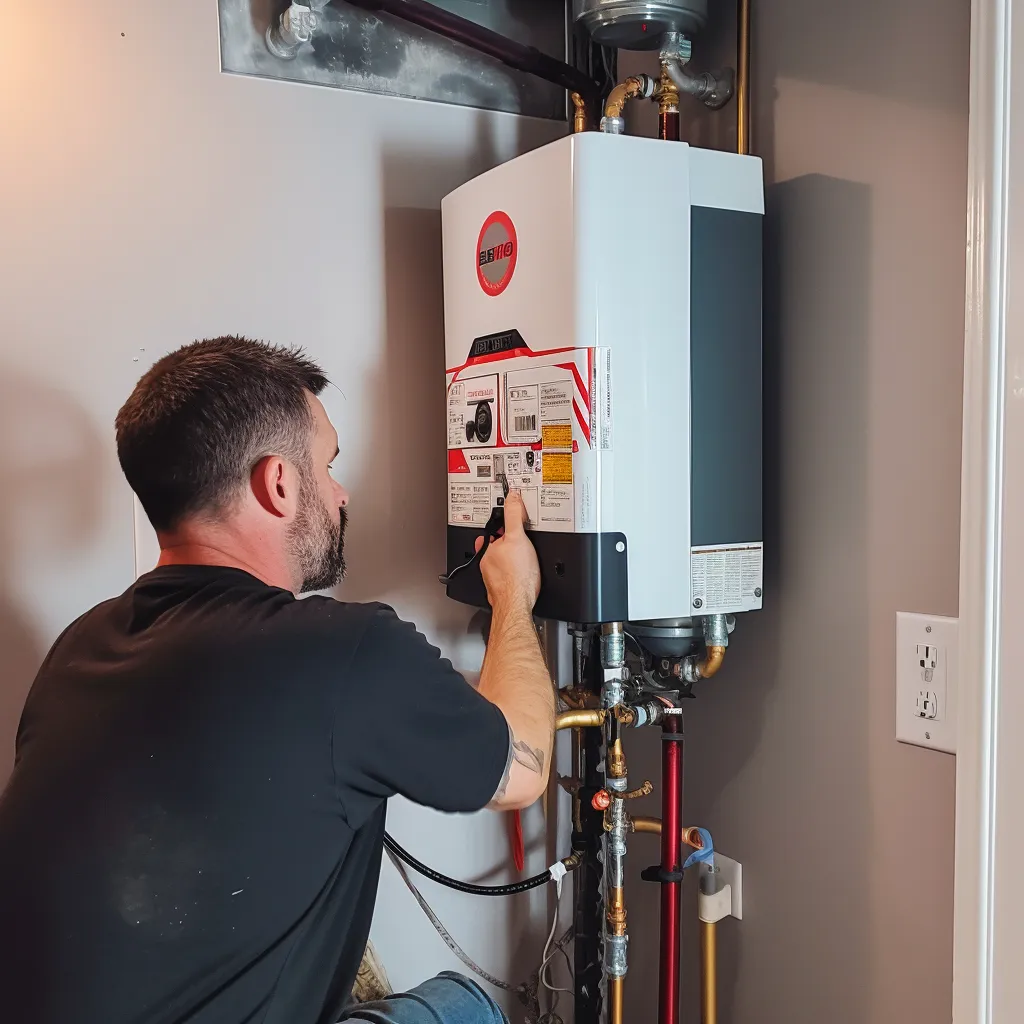
Why Hire a Professional for Installation?
Choosing a licensed professional for water heater installation is vital. They prioritize safety, comply with codes, possess proper equipment, identify issues, and provide peace of mind. Don't risk your well-being. Trust a licensed professional for water heater installations.

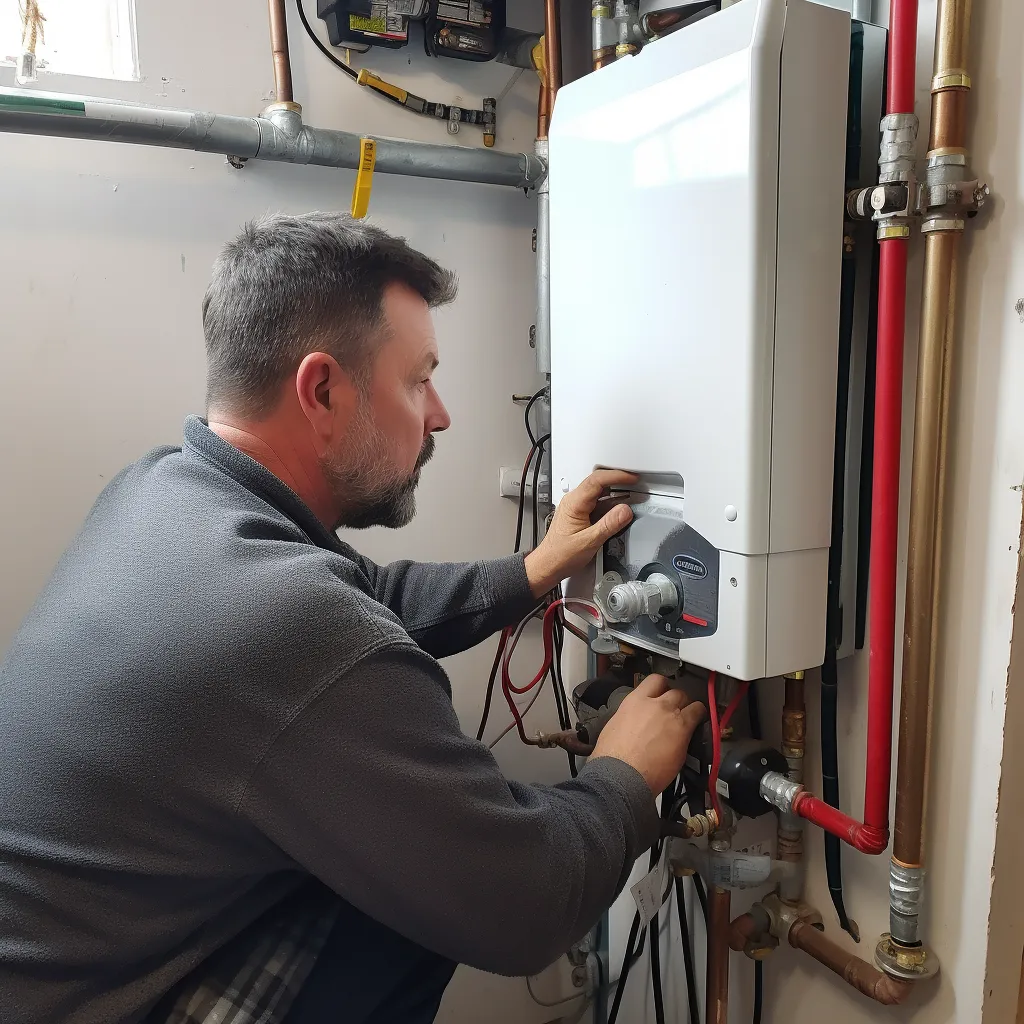
Do Your Due Dilligence
Selecting the right water heater requires careful research and consideration. Whether you're choosing between electric and gas models, it's essential to weigh their advantages and disadvantages. Additionally, factors such as safety considerations and installation requirements should not be overlooked.
Taking the time to develop a well-thought-out plan will help you find the perfect water heater for your needs. However, it's important to emphasize that proper installation should always be carried out by a licensed professional. Their expertise ensures the installation is done correctly and safely, providing you with peace of mind. When it comes to water heaters, a combination of informed decision-making and professional installation is the key to a successful and efficient system.
Ready to Solve Your Plumbing Needs?
For reliable, expert plumbing services tailored to the needs of Malden and its neighboring cities, look no further than Water Heater Genies. We’re here for you 24/7, ensuring that your plumbing is always in top condition.
Call us today to schedule your service!
Business Hours: Monday - Sunday, 24 Hours
Phone Number: (781) 679-1733
Location: Malden, MA serving all surrounding areas.
Trust your local experts at Water Heater Genies for professional, timely, and efficient plumbing solutions.
GET IN FULL TOUCH
PHONE: (781) 679-1733
EMAIL:
marcus@waterheatermalden.com
Water Heater Genies
Malden, MA 01248
